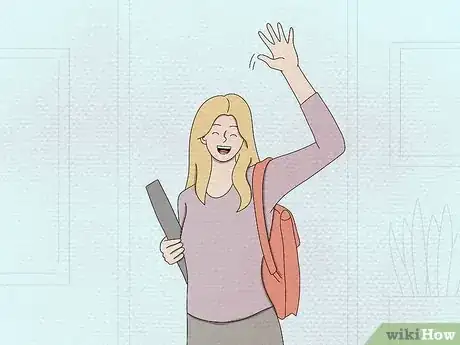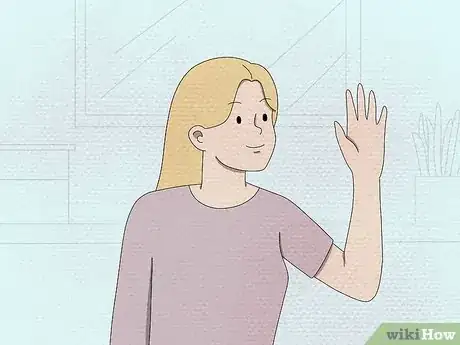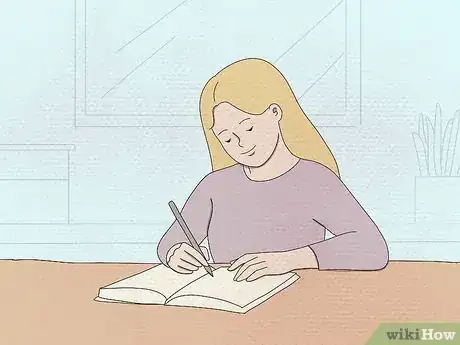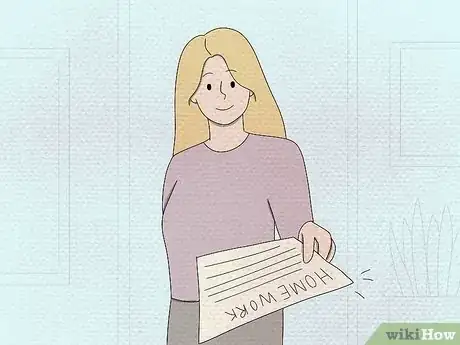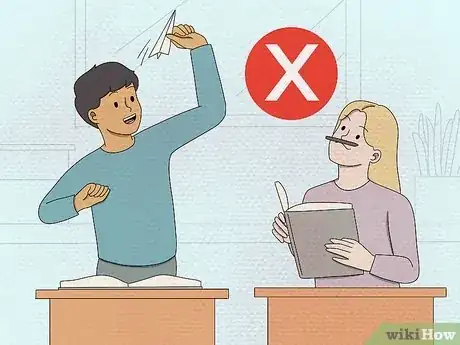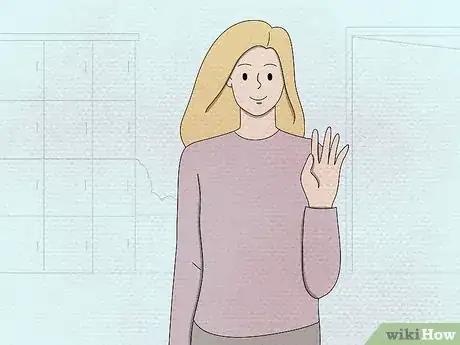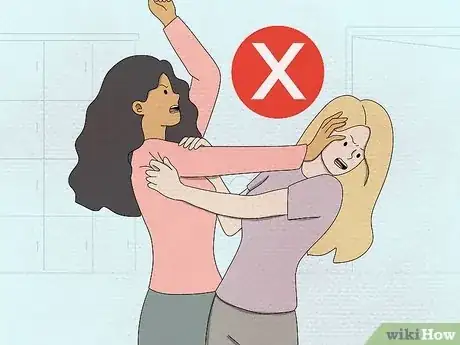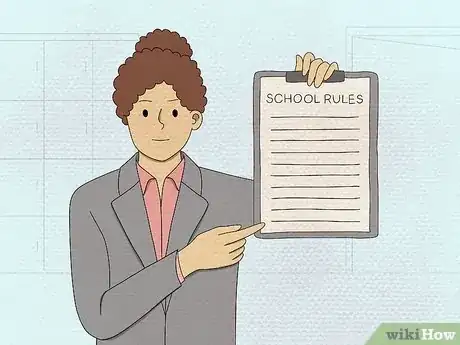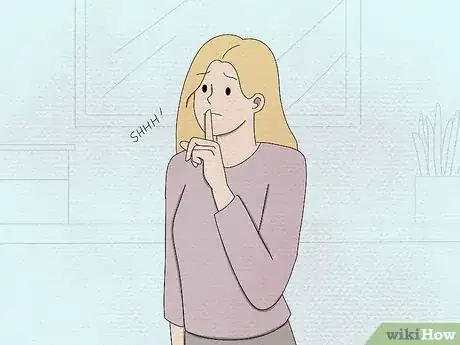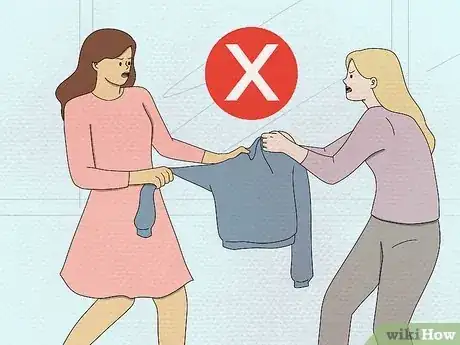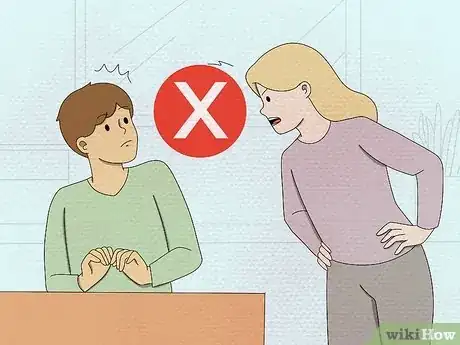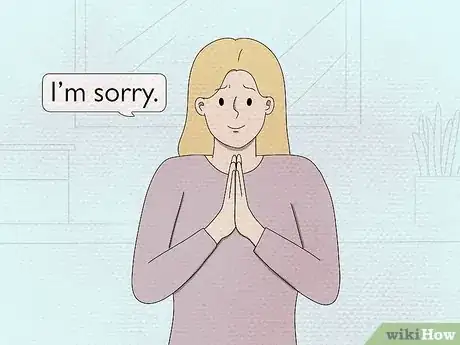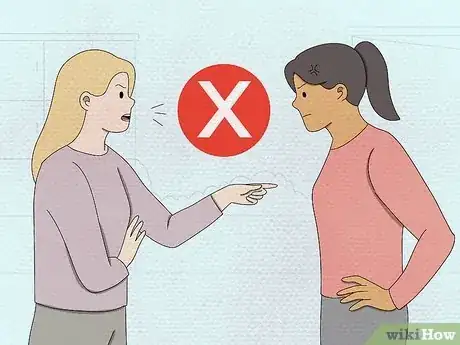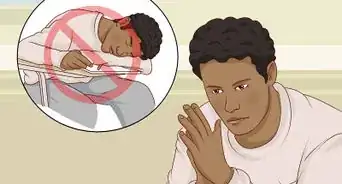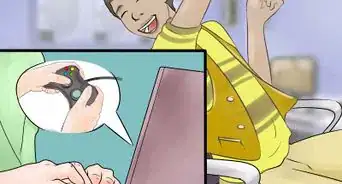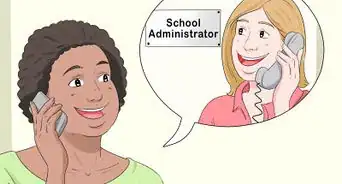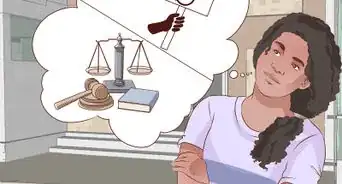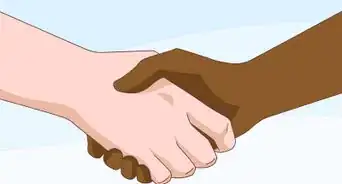This article was co-authored by Alicia Oglesby. Alicia Oglesby is a Professional School Counselor and the Director of School and College Counseling at Bishop McNamara High School outside of Washington DC. With over ten years of experience in counseling, Alicia specializes in academic advising, social-emotional skills, and career counseling. Alicia holds a BS in Psychology from Howard University and a Master’s in Clinical Counseling and Applied Psychology from Chestnut Hill College. She also studied Race and Mental Health at Virginia Tech. Alicia holds Professional School Counseling Certifications in both Washington DC and Pennsylvania. She has created a college counseling program in its entirety and developed five programs focused on application workshops, parent information workshops, essay writing collaborative, peer-reviewed application activities, and financial aid literacy events.
This article has been viewed 58,369 times.
Detentions absolutely stink. Lectures, quiet times, and notes home to your parents are in store for you. Unless you’d rather sit in a classroom with your teacher than spend time with friends during lunch and after school, avoiding detention is important. Fortunately, staying out of trouble is easy. By doing your work and being respectful instead of disruptive, no one will have cause to punish you.
Steps
Behaving in Class
-
1Get to class on time. Whether you’re late getting to school in the morning or are caught lingering in the halls, your teacher won’t be happy. Remember that you’d never skip an appointment, work, or a family trip. Even if you don’t want to go, getting through it now is the right thing to do.
- Detention costs you time during lunch or after school. Being late or skipping school isn’t worth it.
-
2Pay attention in class. Spend your time listening and you’ll find your teacher has a lot to say. You’ll learn when assignments are due and hear the information you need to know for tests. You’ll also find ignoring distractions easier. Never risk having an angry teacher take your phone or wake you up from a nap.[1]
- Try to remove all distractions around you. Leave your phone in your locker and get a good night’s sleep. Ask the teacher to let you sit somewhere else if that would help. Then you can listen closely to your teacher and take notes.
Advertisement -
3Get in-class work done during school hours. Do what the teacher asks you to do. Sit down and focus on the work, no matter what else is going through your mind. Classroom hours are a great time to ask teachers and other students for help. Getting it done now is far better than having to do it in detention or at home.
-
4Finish your homework on time. Be sure to bring your homework back in one piece. The dog didn’t eat it and your teacher knows it. Write down when all the work is due and stay on top of it. Give up procrastinating, since you’ll be rushing at the moment in order to avoid turning in nothing.
- Even if you manage to get all your work done at the last possible moment, your grades will most likely suffer. That gets you in more trouble with parents or the school.
- Think twice before cheating off the student next to you. Plagiarism is a serious offense in all school codes.
- Grades are important, and if you’re not doing the work, your detentions may turn into tutoring sessions.
-
5Limit jokes and other classroom disruptions. Standing up and waving your pencil because you watched Harry Potter last night will cause the rest of the class to laugh. However, your teacher probably won’t appreciate seeing the lesson grind to a halt. Even if you don’t get a detention immediately, settle down instead of continuing to laugh and tell jokes.[2]
-
6Be respectful to everyone. Being rude to adults or other kids won’t win you any favors. Swearing, making rude gestures, or making nasty comments all lead to detention. Practice treating others the way you want to be treated, and you'll find that not only does that help you stay out of trouble, but it makes you a nicer person too.
- Be careful with text messages and social media. Nasty messages carry over to school, even when you think you only sent them to your friends. Don’t do it!
-
7Avoid getting into fights. By keeping your head low and staying out of drama, you’ll stay safe. Students who get into fights are the first to be called troublemakers. If you have to stick up for yourself or someone else, stick to words like “push off,” “shut it,” and “go away.” Sound cool by being assertive but mild, but stay safe by keeping your hands at your side.
- ”Fights” don’t have to be actual fights. You’ll get detentions for doing things like throwing food in someone’s direction or spitting on them.
-
8Follow the school’s rules. Basic rules, such as being respectful and not punching the kid who beat you at soccer, apply at all schools. Your school is bound to have its own rules you need to familiarize yourself with. For example, make sure to follow the dress code, hallway policy, and other rules.
- These rules are usually told to you when you start attending the school. Ask school administrators and official resources for a reminder.
Avoiding Trouble outside of School
-
1Behave at school functions. Remember that you can still get detention at school functions. It doesn’t matter if it’s a school dance nearby or bingo night inside the school. Plenty of students have gotten detentions for misbehaving at these events. School rules still apply, so dressing inappropriately or fighting can get you in trouble.
- If you’re doing something you wouldn’t do around your parents, school officials won’t look kindly on it either.
-
2Stay out of trouble in the community. It doesn’t matter if the other person is a student or someone in the community. If someone tells the school, you’ll have to face the consequences. If you’re wearing the school uniform and swearing at a shopkeeper, you’re giving the school a bad reputation and they may punish you. Stay safe by being respectful wherever you go.[3]
- If the school can’t punish you, law enforcement might. That’s way worse than detention, so consider whether the action is worth the consequences.
-
3Avoid developing a reputation as a troublemaker. Detentions for serious offenses, such as fighting another student or disrespecting a teacher, last on your record. Do your best to stay out of these situations, since they can get you in trouble and land you in detention.[4]
- Don’t worry about getting one or two detentions. As long as you show you’re sorry and work hard to avoid future detentions, you’ll be okay.
- You don't have to "suck up" to your teachers to stay on their good side. Just avoid doing anything that reflects poorly on you, and focus on treating everyone with respect.
Acknowledging When You Did Something Wrong
-
1Apologize to the teacher.[5] So you made a joke in class and now the teacher is upset. Quiet down and simply say, “I’m sorry.”, "Sorry.", or "I apologize." It helps to say exactly what you’re sorry for. For example, you can say “I’m sorry for disrupting class,” which applies to most jokes or arguments. An immediate apology can save you from 30 minutes of silent detention.[6]
-
2Avoid making a scene. No matter how wrong you think the teacher is, further disrupting the class will guarantee your butt lands in detention. Don’t raise your voice or argue. It’s tempting to double down with more jokes, laughter, or passing a note to your friend, but stop yourself. At the end of the day, the teacher is in charge and they have the power to punish you.
-
3Speak to the teacher alone. Give yourself time to take a deep breath and calm down. Wait for the other students to leave before stating your case. Admit to what you did and explain that you’re sorry for doing it. Go ahead and discuss the class, such as what you like about it or how you can do better in it. These sorts of discussions help smooth other rough patches and make your teacher feel more forgiving.[7] [8]
- One on one dialogue is the best way to handle it. Don’t involve your parents or anyone else until it becomes absolutely necessary, since this often makes situations worse.
-
4Speak to school administrators when you’ve been treated unfairly. In some cases, the teacher won’t listen to you. Usually, you’ll have to suck it up and serve out the detention. If you feel that the teacher did something unjust, such as punishing you for something you didn’t do, the administrators can help. The ideal option is setting up a meeting between the three of you where you can work out the issue.
Community Q&A
-
QuestionI got a detention and now my friends are laughing at me. What should I do?
 Community AnswerIgnore them or joke about it. Any of them could end up in detention too, and then you can return the favor.
Community AnswerIgnore them or joke about it. Any of them could end up in detention too, and then you can return the favor. -
QuestionI got a detention for nothing and now my best friend is not my friend. How do I recover?
 Community AnswerIs there a chance you can talk it out with your friend? If not, that's normal too. Friendships come and go, especially when you're in school taking detentions you didn't deserve.
Community AnswerIs there a chance you can talk it out with your friend? If not, that's normal too. Friendships come and go, especially when you're in school taking detentions you didn't deserve. -
QuestionIf the teacher picks on you, what will happen?
 Community AnswerA teacher who singles you out can make life harder for you by giving you plenty of detentions. They might grade your work harsher than others, too. Make sure you're always respectful of them. Then you may try talking to them one on one or speaking to school administrators about the problem.
Community AnswerA teacher who singles you out can make life harder for you by giving you plenty of detentions. They might grade your work harsher than others, too. Make sure you're always respectful of them. Then you may try talking to them one on one or speaking to school administrators about the problem.
Warnings
- Teachers are all different. Some have shorter tempers or might seem eager to give you detention. You’ll have to figure out a strategy for surviving their classes.⧼thumbs_response⧽
References
- ↑ http://www.telegraph.co.uk/news/uknews/1548273/What-a-teacher-can-do-and-cant-do.html
- ↑ https://www.districtadministration.com/article/new-direction-school-detention
- ↑ http://www.telegraph.co.uk/news/uknews/1548273/What-a-teacher-can-do-and-cant-do.html
- ↑ http://www.collegeconfidential.com/dean/will-6th-grade-detention-affect-college-admission/
- ↑ Alicia Oglesby. Professional School Counselor. Expert Interview. 29 October 2020.
- ↑ https://www.districtadministration.com/article/new-direction-school-detention
- ↑ https://www.youtube.com/watch?v=weHY2CHamwg&feature=youtu.be&t=61
- ↑ Alicia Oglesby. Professional School Counselor. Expert Interview. 29 October 2020.
